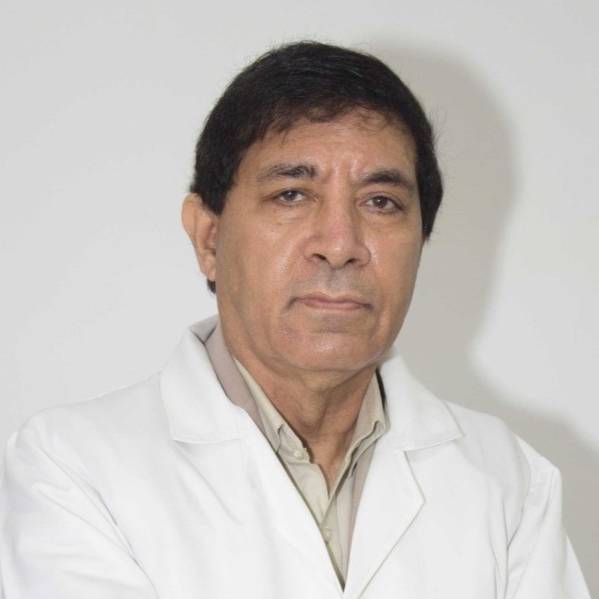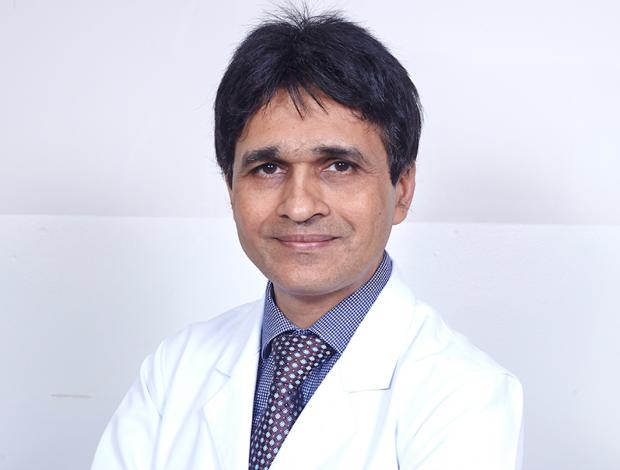About the Doctor
Dr Jagdish Chander Suri is one of the eminent Pulmonologist, Critical Care & Sleep Medicine expert with over 35 yrs of experience in this field. He was former Consultant, Professor and Head of Department of Pulmonary, Critical Care and Sleep Medicine at Vardhman Mahavir Medical College & Safdarjung Hospital, New Delhi, India. He is a recognized DM and MD post graduate guide for University of Delhi, GGS IP University, Delhi and National Board of Examination for the last 30 years. He is credited with introducing the field of clinical sleep medicine in India and established the first state of the art sleep lab of India at Safdarjang hospital in 1990. He also established the first critical care unit under Physician care exclusively in North India in 1990 and went on to establish the first comprehensive Department of Pulmonary, Critical Care and Sleep Medicine in India at Safdarjang Hospital. He started the DM program in Pulmonary and Critical Care Medicine at VMMC and Safdarjang Hospital, the second such centre in India to do so. As Vice principal of VMMC, he was instrumental in developing the course and curriculum for the MBBS students at GGS IP University.
Specialization
Pulmonology / Chest & Sleep Medicine
Awards
Awarded: the Lifetime achievement award for Contribution to the development of sleep medicine In India for the year 2017 by American Association of Physicians of Indian Origin – Sleep (AAPIOS)
Frequently Asked Questions About Pulmonology
What is Pulmonary (Lung) Function Test?
PFT measures how much air you can breathe in and out and how fast you can do it and how well your lungs are working to deliver oxygen to your blood. PFT is a painless test and a technician will ask you to take a deep breath and then blow as hard as you can into a tube connected to PFT machine.
PFT is the most important test for the diagnosis and management of COPD. PFT is similar to ECG of the lungs.
What all conditions do Pulmonologist Treat?
COPD, Asthma, Tuberculosis, ILD (Interstitial Lung Disease), Respiratory Failure, Lung Cancer, Sleep Apnea syndrome (OSAHS), Snoring, Pleural Effusions, Pneumothorax, Pulmonary infections, Sarcoidosis, Hemoptysis (coughing out blood), Lymph nodes (glands)/ Masses in the chest
Is asthma Fatal?
Asthma, if not taken care of or controlled properly can prove to be fatal. Studies have shown that people who died of asthma, one third of them had mild disease. Thus, it is very important to keep your asthma in check and try and reduce your exposure to polluted air as much as possible.
When is Asthma Alarming?
Asthma can be caused by exposure to dust, pollens, cockroaches, house mites, air pollutants, perfumes, smoke and viral infections. It can be life threatening for some people and may require intervention. Few alarming symptoms are:
- Breathing in hard that the abdomen is sucked inside the ribs
- Gasping for air
- Difficulty in speaking
When to see the doctor for Asthma?
hen the air passage between the mouth, nose and lungs gets interrupted and there is inflammation or swelling of bronchial tubes, you might be suffering from serious bronchitis. A prolonged cough and cold can lead to acute bronchitis in children, while older adults can be also face problems in breathing if medical intervention is not taken on time. You need to visit the doctor if:
- You are having high fever- more than 101 degrees
- Difficulty in sleeping
- Coughing up blood
- Gasping for breath
- You are producing any discolored mucus
How will I know if I am suffering from Sleep apnea?
Sleep apnea is one of the most common disorders that often go undiagnosed. Sleep apnea should not be overlooked because its symptoms are so broad that it can interrupt your hard day at work and can lead to serious complications. The most common symptoms are:
- Waking up with sore or dry throat
- Loud snoring
- Occasionally waking up with a choking or gasping sensation
- Sleepiness or lack of energy during the day
- Sleepiness while driving
- Morning headaches
- Restless sleep
- Forgetfulness and mood changes
In addition to this, Obstructive Sleep Apnea (OSA) can have a negative impact on your health and can cause:
- Heart attack and Blood Pressure
- Diabetes
- Lead to Weight Gain
- Depression
- Aging of Skin












